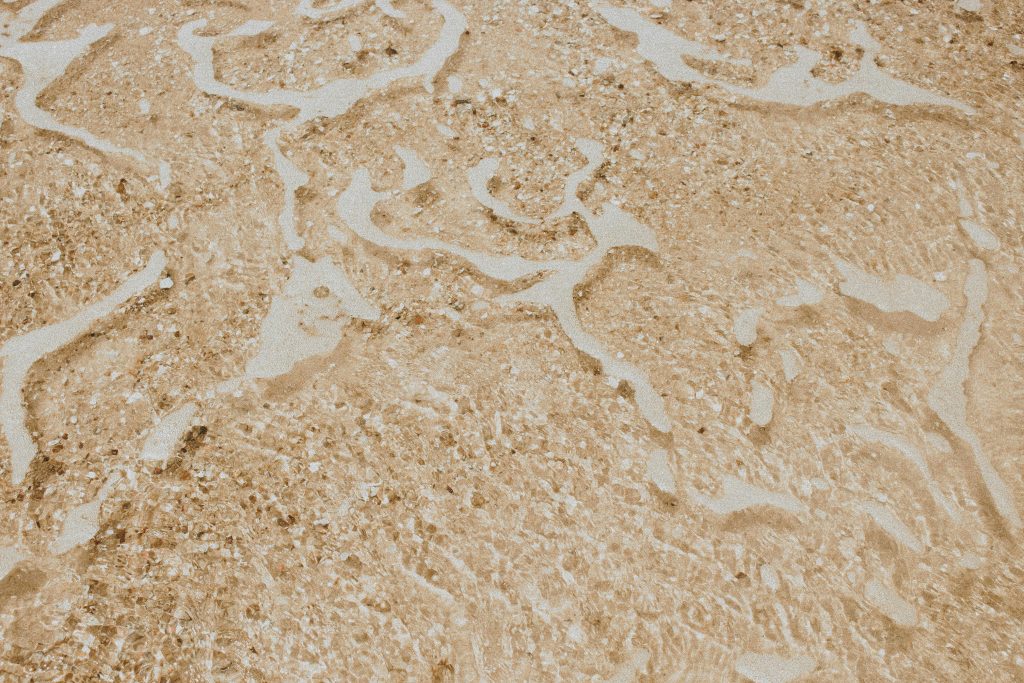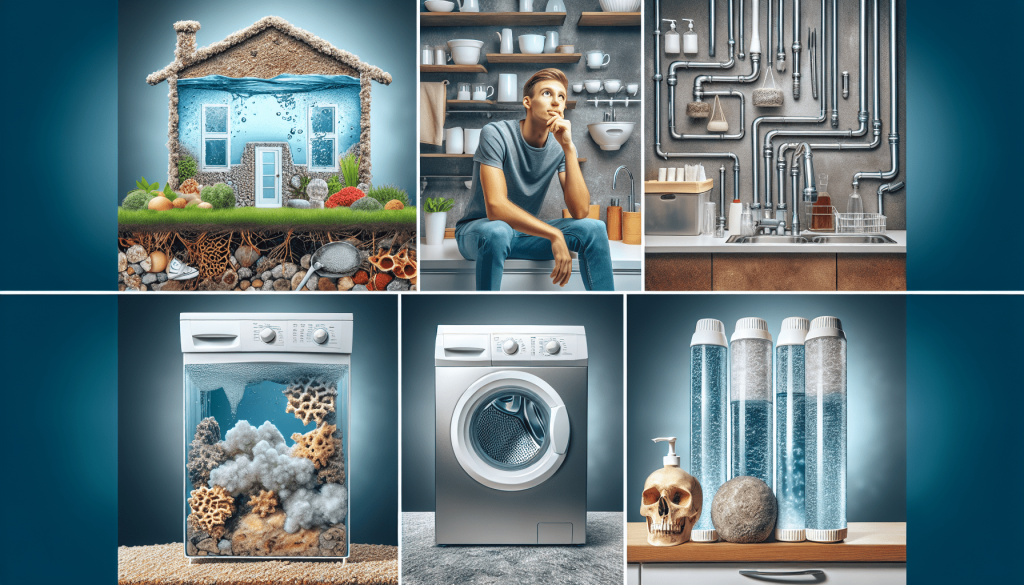Imagine living in a world where your shower feels like a gentle waterfall, your clothes come out of the laundry soft and vibrant, and your dishes are free from stubborn water spots. Sounds like a dream, right? Well, for those without a water softener, it could be a different story. Hard water, with its high mineral content, can wreak havoc on your appliances, pipes, and even your skin and hair. In this article, we’ll explore the potential consequences of not having a water softener and why it might be worth considering investing in one for the sake of your home and well-being.

Introduction
Definition of water softener
A water softener is a device that is used to remove minerals, particularly calcium and magnesium, from hard water through a process called ion exchange. It works by replacing these minerals with sodium ions, resulting in softer water that is more suitable for everyday use.
Importance of water softening
Water softening is important because it helps to prevent mineral buildup in pipes and appliances, improves the efficiency of soap and detergent, and promotes healthier skin and hair. By removing the minerals that cause water hardness, a water softener can help keep your plumbing system in good condition and prolong the lifespan of your appliances. It also allows soaps and detergents to lather more effectively, resulting in cleaner and fresher laundry, dishes, and personal hygiene. Additionally, soft water is gentler on your skin and hair, reducing dryness, irritation, and the need for excessive moisturizers.
Effects of Hard Water
Mineral buildup in pipes and appliances
Hard water contains high levels of minerals, primarily calcium and magnesium. Over time, these minerals can cause buildup and clog pipes, water heaters, and other appliances that come into contact with water. This can result in reduced water flow, increased stress on the plumbing system, and even the need for costly repairs or replacements. By using a water softener, you can prevent mineral buildup and maintain the optimal functioning of your plumbing system and appliances.
Reduced efficiency of soap and detergent
The high mineral content in hard water can also hinder the effectiveness of soaps and detergents. The minerals can react with the compounds in the soap, forming a scum or residue that is difficult to rinse off. As a result, you may need to use more soap and detergent to achieve the desired cleaning results. This not only wastes money but also increases the environmental impact of excess chemical usage. Water softening helps to improve the efficacy of soaps and detergents, ensuring a more efficient and economical cleaning routine.
Dry and irritated skin and hair
Using hard water for bathing and washing can have negative effects on your skin and hair. The minerals in hard water can strip away the natural oils from your skin, leading to dryness, irritation, and even conditions such as eczema or dermatitis. Similarly, hard water can weigh down your hair, causing it to become dull, brittle, and prone to breakage. Switching to soft water through the use of a water softener can help alleviate these issues, leaving your skin feeling smoother, your hair more manageable, and reducing the need for additional moisturizers or hair treatments.
Benefits of Water Softening
Prevents mineral buildup in plumbing system
One of the key benefits of water softeners is their ability to prevent mineral buildup in the plumbing system. By removing calcium and magnesium from the water, a water softener helps to keep your pipes clean and free from scale. This reduces the risk of clogs, blockages, and potential damage to your plumbing system, ensuring a smooth and efficient flow of water throughout your home.
Improves soap and detergent effectiveness
Water softeners also improve the effectiveness of soaps and detergents. Without the presence of minerals, soaps can lather more easily and effectively, resulting in cleaner dishes, laundry, and personal hygiene. This not only saves you money on the amount of soap or detergent needed but also provides a more satisfying cleaning experience. You’ll notice that your clothes feel softer, your dishes shine brighter, and your skin and hair feel cleaner and fresher.
Promotes healthier skin and hair
Using soft water from a water softener can have a positive impact on your skin and hair health. Soft water is much gentler on your skin, as it doesn’t strip away the natural oils that keep it hydrated and protected. This can help alleviate dryness, itchiness, and irritation, and even improve certain skin conditions. In addition, soft water is less likely to leave a residue on your hair, allowing it to feel softer, more manageable, and healthier overall. By investing in a water softener, you are investing in the health and appearance of your skin and hair.
Potential Issues Without a Water Softener
Increased expenses for repairs and maintenance
If you choose not to have a water softener, you might face increased expenses for repairs and maintenance. The minerals in hard water can accumulate over time, leading to clogs and damage in your plumbing system and appliances. This can result in the need for professional repairs or even the replacement of expensive components like water heaters, washing machines, or dishwashers. By using a water softener, you can proactively prevent these issues and save yourself the hassle and costs associated with repairs and replacements.
Higher energy consumption
Hard water can also contribute to higher energy consumption. The mineral buildup in water heaters, for example, can reduce their efficiency and require them to use more energy to heat the water. This can result in increased energy bills and a negative impact on the environment. By using a water softener to prevent mineral buildup, you can help your appliances function at their best, ensuring optimal energy efficiency and reduced energy consumption.
Possible health risks
In some cases, the high mineral content in hard water can pose potential health risks. For instance, the presence of certain minerals, like lead or arsenic, in the water can be harmful if ingested over time. While a water softener primarily targets calcium and magnesium, it can indirectly help in reducing the concentration of these harmful minerals as well. It is important to understand the quality of your water source and take appropriate measures to ensure its safety, including the use of a water softener if necessary.

Considerations for Not Having a Water Softener
Water hardness levels
The level of water hardness in your area is an essential consideration when deciding whether or not to have a water softener. The hardness of water is measured in grains per gallon (gpg) or milligrams per liter (mg/L). If the water hardness exceeds the recommended level, usually around 3-4 gpg or 60-75 mg/L, it is advisable to use a water softener. However, if the water hardness is within an acceptable range, you may not necessarily need a water softener.
Water source and quality
It is also crucial to consider the source and quality of your water. If you have a private well, for example, the water may have a different mineral content compared to water supplied by a municipal system. Testing the water quality can provide valuable insights into the composition and potential issues associated with hard water. If the test reveals high mineral levels or other water quality issues, a water softener may be beneficial.
Budget constraints
Lastly, budget constraints can influence the decision to have a water softener. While water softeners are an investment in the long run, they do require an initial upfront cost for purchase and installation. If your budget does not allow for such expenses at the moment, you may need to prioritize and explore alternative solutions or temporary measures until you can afford to install a water softener.
Alternatives to Water Softeners
Water conditioners
Water conditioners are an alternative to traditional water softeners. They work by altering the structure of the minerals in the water, preventing them from forming scale. While water conditioners do not remove the minerals like water softeners do, they can still offer some benefits in terms of preventing scale buildup and improving soap effectiveness. However, it is important to note that water conditioners may not be as effective as water softeners in all cases, particularly in areas with high water hardness.
Magnetic descalers
Magnetic descalers are another alternative to water softeners. They use magnets to create a magnetic field around the water pipes, which is believed to alter the properties of the minerals and prevent them from adhering to surfaces. While there are mixed opinions on the effectiveness of magnetic descalers, some individuals report positive results in terms of reduced scale buildup. However, more research is needed to fully understand the long-term impact and reliability of this technology.
Salt-free water softeners
Salt-free water softeners, often referred to as water conditioners as well, use various technologies such as carbon filtration or template-assisted crystallization (TAC) to reduce or prevent scale buildup. Unlike traditional water softeners, salt-free alternatives do not remove the minerals from the water but rather transform them into a form that is less likely to cause scale. They can be a suitable option for those looking to avoid the use of salt or who prefer to retain some mineral content in their water.

Professional Opinion
Plumber’s perspective on the necessity of water softeners
From a plumber’s perspective, water softeners are highly beneficial for maintaining the health and functionality of a plumbing system. Hard water can lead to scale buildup, corrosion, and reduced water flow within pipes, which can result in clogs, leaks, and damage to the plumbing infrastructure. By installing a water softener, these issues can be mitigated, extending the lifespan of the plumbing system and reducing the need for costly repairs and replacements. Plumbers often recommend using water softeners, especially in areas with known water hardness problems.
Expert advice on the impact of hard water on home appliances
Experts in the field of home appliances also emphasize the importance of water softening. Appliances such as water heaters, washing machines, dishwashers, and coffee makers are susceptible to mineral buildup from hard water. This can lead to reduced efficiency, increased energy consumption, and the need for repairs or replacement. By using a water softener, you can prevent these issues and ensure that your appliances function optimally, saving you both money and the inconvenience of appliance breakdowns.
Case Studies
Real-life experiences of individuals without water softeners
Many individuals have shared their experiences of living without water softeners and the problems they encountered as a result. For example, one homeowner noticed a significant decrease in water pressure due to mineral buildup in the pipes, which required costly repairs to resolve. Another individual reported that their dishes consistently had spots and a dull appearance, despite using high-quality dishwasher detergent. These real-life examples demonstrate the negative impact that hard water can have on daily life and the importance of water softening.
Comparison of water quality with and without a softener
Numerous studies have been conducted to compare the water quality before and after the use of a water softener. These studies consistently show a significant reduction in water hardness and mineral content after softening. Additionally, the studies demonstrate improvements in soap lather, reduced scale buildup, and better overall water quality. The comparisons provide scientific evidence of the benefits of water softeners and offer valuable insights into the impact of soft water on various aspects of daily life.

Conclusion
In conclusion, while it may not be “bad” in the strictest sense to not have a water softener, there are undeniable benefits to using one. Water softeners help prevent mineral buildup in pipes and appliances, improve soap and detergent effectiveness, and promote healthier skin and hair. Choosing not to have a water softener can lead to increased expenses for repairs and maintenance, higher energy consumption, and possible health risks. However, the decision to invest in a water softener should take into account factors such as water hardness levels, water source and quality, and budget constraints. Consideration of alternative solutions such as water conditioners, magnetic descalers, or salt-free water softeners may also be worth exploring. Ultimately, the choice to have a water softener is a personal one, but it is crucial to weigh the necessity and convenience it offers against the potential drawbacks of not having one.


